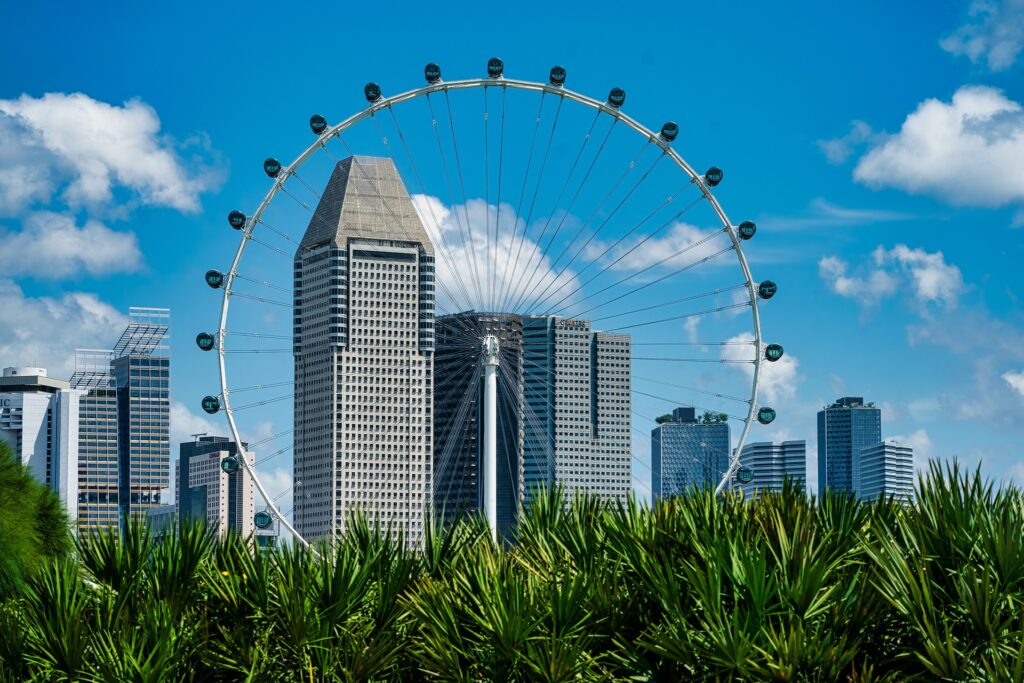Tourism has long been hailed as a powerful engine of economic growth, creating jobs, stimulating investment, and fostering cultural exchange. Yet, the traditional tourism model often comes at a significant cost—environmental degradation, cultural erosion, and economic inequality. This is where responsible tourism emerges as a beacon of hope, promising not only to protect the planet and its people but also to deliver substantial economic benefits. In this article, we will explore the best 10 economic benefits of responsible tourism, revealing how this sustainable approach can be a game-changer for local communities and global economies alike.
What is Responsible Tourism?

Responsible Tourism is a conscious way of traveling that prioritizes the well-being of local communities, cultures, and the environment. Unlike traditional tourism, which often overlooks the negative impacts of mass travel, Responsible Tourism seeks to minimize harm while maximizing the positive contributions visitors can make. This approach encourages travelers to respect the cultural heritage of the places they visit, support local economies by choosing ethically run accommodations and eateries, and reduce their environmental footprint.
When engaging in Responsible Tourism, travelers are urged to immerse themselves in the local way of life, forging genuine connections and learning from the communities they encounter. This form of tourism fosters mutual respect and understanding, creating a sustainable model that benefits both visitors and locals alike. Through careful consideration of our travel choices, Responsible Tourism allows us to explore the world while leaving a positive legacy, ensuring that future generations can enjoy the same wonders we experience today.
Protect your travels with comprehensive medical insurance. Click here to secure your policy today and travel with peace of mind!
Official Website: www.travelmedicalinsurance.com
Top 10 Economic Benefits of Responsible Tourism
1. Job Creation and Skill Development
One of the most immediate and impactful economic benefits of responsible tourism is job creation. Unlike mass tourism, which often leads to the exploitation of cheap labor, responsible tourism prioritizes fair wages, safe working conditions, and local employment. This approach not only provides jobs for residents but also fosters skill development. For instance, in regions where traditional craftsmanship or agricultural practices are fading, responsible tourism can revitalize these industries by creating demand for local products and services. Tourists eager to experience authentic cultural traditions are willing to pay for locally-made goods, workshops, and guided tours, thus directly contributing to the local economy.
Example: In Bhutan, where the government has adopted a policy of “high-value, low-impact” tourism, local artisans have seen a resurgence in demand for their handcrafted goods. The revenue generated from these sales has helped preserve traditional skills and provided a steady income for families who might otherwise have abandoned their craft.
2. Strengthening Local Economies
Responsible tourism focuses on ensuring that a significant portion of tourism revenue stays within the local community. This can be achieved by promoting locally owned businesses such as hotels, restaurants, and tour operators, rather than multinational corporations that funnel profits out of the region. By encouraging tourists to spend money locally, responsible tourism helps strengthen the economic fabric of the community, leading to more resilient and self-sufficient economies.
Example: In the village of Chumbe Island, Zanzibar, the community-run Chumbe Island Coral Park has become a model of responsible tourism. The eco-lodge employs local staff, sources food and supplies locally, and reinvests profits into community development and conservation efforts. This has not only boosted the local economy but also preserved the island’s unique ecosystem.
3. Encouraging Sustainable Business Practices
Responsible tourism encourages businesses to adopt sustainable practices that can have long-term economic benefits. This includes everything from reducing waste and conserving energy to supporting local farmers and artisans. By promoting sustainability, responsible tourism helps businesses reduce costs, improve efficiency, and build a loyal customer base that values ethical and environmentally friendly practices. Over time, this can lead to increased profitability and a more stable economic environment.
Example: The Fogo Island Inn in Newfoundland, Canada, is a prime example of a business that has embraced sustainability as a core principle. The inn sources food from local farmers and fishers, uses renewable energy, and invests in local cultural programs. This commitment to sustainability has not only won the inn international acclaim but also provided a steady stream of income for the local community.
4. Fostering Innovation and Entrepreneurship
The focus on local communities and sustainable practices inherent in responsible tourism often leads to a surge in innovation and entrepreneurship. As communities recognize the potential of tourism to generate income, they are inspired to create new products, services, and experiences that cater to responsible tourists. This entrepreneurial spirit can lead to the development of unique and high-quality offerings that set a destination apart from its competitors, further boosting the local economy.
Example: In Peru, the concept of “community-based tourism” has taken off, with local entrepreneurs developing homestays, guided treks, and cultural experiences that allow tourists to immerse themselves in indigenous traditions. These initiatives have not only provided a new source of income for rural communities but also preserved cultural heritage and promoted sustainable land use practices.
5. Diversifying Income Sources
Responsible tourism can play a crucial role in diversifying income sources for communities that may be overly reliant on a single industry, such as agriculture or fishing. By developing tourism-related businesses, communities can create new revenue streams that reduce their vulnerability to economic shocks, such as crop failures or market fluctuations. This diversification is essential for building economic resilience and ensuring long-term prosperity.
Example: In the Maasai Mara region of Kenya, responsible tourism initiatives have helped diversify the local economy by creating opportunities in wildlife conservation, eco-lodging, and cultural tourism. These new income sources have not only reduced the community’s reliance on livestock farming but also contributed to the preservation of the region’s unique biodiversity.
6. Preserving Cultural Heritage
Responsible tourism can generate significant economic benefits by preserving cultural heritage. When tourists are drawn to a destination’s unique cultural offerings, they create demand for traditional crafts, performances, and cultural experiences. This demand provides an incentive for local communities to maintain their cultural practices, which might otherwise be lost to modernization. The preservation of cultural heritage not only enriches the tourist experience but also ensures that future generations can continue to benefit from these traditions.
Example: The city of Cusco, Peru, has seen a revival of traditional Andean weaving practices thanks to responsible tourism initiatives. By promoting the sale of handwoven textiles to tourists, local weavers have been able to earn a sustainable income while preserving their cultural heritage.
Protect your travels with comprehensive medical insurance. Click here to secure your policy today and travel with peace of mind!
Official Website: www.travelmedicalinsurance.com
7. Supporting Environmental Conservation
While environmental conservation might seem primarily an ecological concern, it also has significant economic implications. Responsible tourism often involves the protection of natural resources, which in turn supports industries such as agriculture, fishing, and forestry that rely on a healthy environment. By preserving natural habitats and reducing environmental degradation, responsible tourism helps safeguard the long-term economic viability of these industries.
Example: In Costa Rica, responsible tourism has been a driving force behind the country’s conservation efforts. The revenue generated from eco-tourism has funded the creation of national parks and protected areas, which not only preserve biodiversity but also provide a sustainable source of income for local communities through tourism-related activities.
8. Reducing Poverty and Inequality
Responsible tourism has the potential to reduce poverty and inequality by ensuring that the benefits of tourism are distributed more equitably. This can be achieved by supporting community-based tourism initiatives, promoting fair trade practices, and investing in education and training for residents. By empowering marginalized communities and providing them with the tools and resources to participate in the tourism economy, responsible tourism can help bridge the gap between rich and poor.
Example: In Nepal, the village of Ghandruk has become a model for responsible tourism. By developing community-based trekking routes and homestays, the village has generated income that has been reinvested in education, healthcare, and infrastructure. This has not only improved the quality of life for residents but also reduced economic disparities within the community.
9. Enhancing Infrastructure and Public Services
Responsible tourism can stimulate investment in infrastructure and public services, which benefits both tourists and residents. This includes the development of roads, transportation networks, healthcare facilities, and educational institutions. By improving infrastructure, responsible tourism enhances the overall quality of life for local communities and creates a more attractive environment for future investment and economic development.
Example: In Rwanda, the revenue generated from gorilla trekking permits have been used to fund the construction of schools, healthcare centers, and roads in rural areas. This investment in infrastructure has not only improved living standards for residents but also made the region more accessible and appealing to tourists.
10. Promoting Global Economic Stability
Finally, responsible tourism contributes to global economic stability by promoting sustainable development practices that can be replicated in other regions. As more destinations adopt responsible tourism principles, the global tourism industry becomes more resilient to economic shocks, such as recessions or natural disasters. This stability benefits not only individual communities but also the global economy as a whole.
Example: The European Union’s commitment to promoting responsible tourism through initiatives like the European Capitals of Smart Tourism has had a ripple effect across the continent. By encouraging cities to adopt sustainable tourism practices, the EU has helped create a more stable and resilient tourism industry that can weather economic challenges.
Conclusion
Responsible tourism is more than just a buzzword; it is a powerful tool for economic development that can transform communities, preserve cultural heritage, and protect the environment. By focusing on local benefits, promoting sustainability, and ensuring equitable distribution of wealth, responsible tourism offers a path to economic prosperity that is both inclusive and sustainable. As travelers, we have the power to choose destinations and practices that align with these principles, ensuring that our journeys contribute to the well-being of the people and places we visit. The economic benefits of responsible tourism are clear, but it is up to all of us to make this vision a reality.
5 FAQs About the Economic Benefits of Responsible Tourism
1. What are the economic benefits of responsible tourism?
Responsible tourism boosts local economies by creating jobs, supporting sustainable businesses, preserving cultural heritage, and fostering innovation and entrepreneurship.
2. How does responsible tourism create jobs?
Responsible tourism promotes local employment by supporting businesses that hire residents, pay fair wages, and invest in skill development within the community.
3. Can responsible tourism help reduce poverty?
Yes, responsible tourism can reduce poverty by ensuring that tourism revenue is distributed equitably, supporting community-based initiatives, and providing education and training opportunities.
4. How does responsible tourism support sustainable businesses?
Responsible tourism encourages businesses to adopt eco-friendly practices, source locally, and reduce waste, leading to long-term economic benefits and a loyal customer base.
5. Why is responsible tourism important for global economic stability?
By promoting sustainable development practices, responsible tourism creates a more resilient global tourism industry, reducing the impact of economic shocks and benefiting local and global economies.



